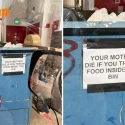A split-second hesitation – and four digits – saved her from a scam.
A woman in her 50s was just moments away from sending about $900 via PayNow to a DBS bank account, for what she believed was an insurance payment.
She had received a call from someone claiming to be from NTUC Income. The caller said her “trial insurance plan” had expired, and she now owed monthly premiums.
The “staff” guided her step by step on how to transfer the payment.
What followed was a flicker of doubt. Instead of pressing “send” on her PayNow screen, the woman hung up and dialled 1799, the 24-hour ScamShield helpline.
When ScamShield helpline agent Alyshah Fandy picked up the call, she immediately sensed the woman’s distress.
The 23-year-old has been working as a ScamShield call agent since the helpline was launched in September 2024.
Manned by over 10 agents and run by the National Crime Prevention Council (NCPC), the ScamShield helpline helps the public verify if a situation they’re facing could be a scam.
It’s part of the ScamShield Suite, which also includes a website (
scamshield.gov.sg
), a mobile application and a WhatsApp alert channel.
Calmly, Ms Alyshah guided the woman through the incident: who called, what they said, and what they asked her to do.
As the woman recounted the details, something clicked. “She realised, right there on the call, that it was a scam,” Ms Alyshah told The Straits Times.







